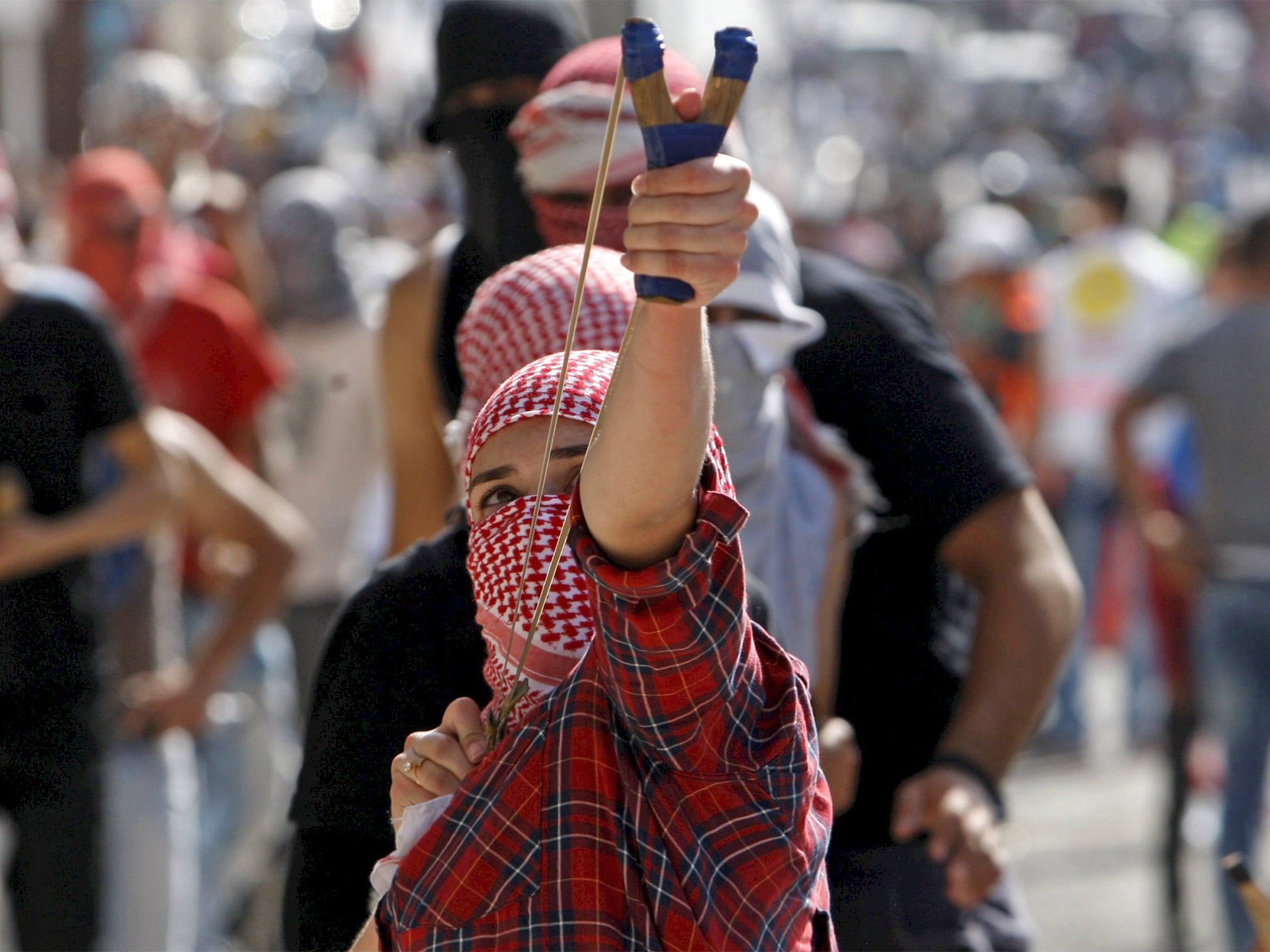Boiling point: Is a third Palestinian intifada about to break out?
It was a sense of powerlessness among the Palestinian population that drove the previous intifadas, and that can be found in abundance today

It looks like history repeating itself. A spate of murders, carried out by Palestinians within Israeli territory, has been met with a militarised response from Israel’s authorities, which has added an estimated 30 Palestinians to the death toll of seven Israeli Jews. There is talk once again of the prospect of a “third intifada” – a massive uprising of Palestinian society against the occupation of their putative state territory.
Such fears are not unfounded: an Arab neighbourhood of Jerusalem was partially closed off by Israeli police in an attempt to contain the apparently spontaneous wave of attacks in the city; Israel’s Public Security Minister approved steps to make it easier for citizens to obtain guns; and it was announced that tougher sanctions will fall on the families of any Palestinians involved in the attacks. None of this is likely to cool the temperature in a situation that has once more reached boiling point.
It was a sense of powerlessness among the Palestinian population that drove the previous intifadas, and that can be found in abundance today. Ten years of relative peace (within Israel, if not Gaza or the West Bank) has failed to bring a diplomatic solution to the conflict any closer. The Palestinian Authority (PA), which controls the West Bank, has rarely looked weaker, and attempts to drive forward its cause through engagement with international bodies, such as the International Criminal Court, have so far come to nothing. Most of the ingredients are there for a collective explosion.
Only leadership, this time, is absent. The attacks up to now have been predominantly spontaneous, carried out by young Palestinians unconnected to armed factions. Mahmoud Abbas, the PA President, has called for calm. Without political backing, the violence is unlikely to build into mass revolt. But Israel’s heavy-handed response is also highly unlikely to stop “lone wolf” attacks or prevent more of Palestinian civil society joining the fray.
Join our commenting forum
Join thought-provoking conversations, follow other Independent readers and see their replies
Comments
Bookmark popover
Removed from bookmarks